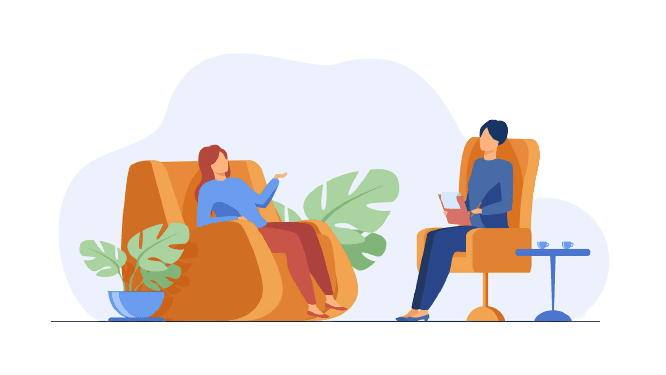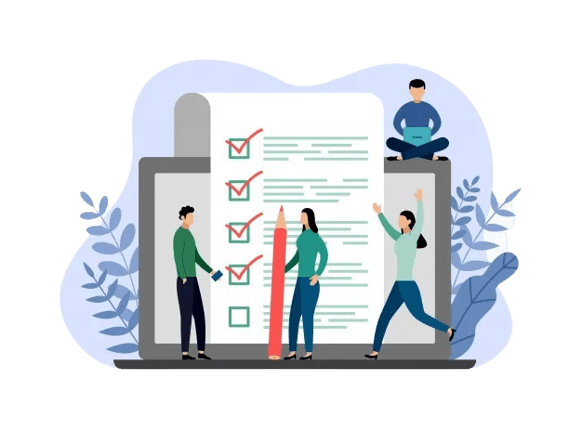Unstuck OCD Assessment
3 Min Free Unstuck OCD Assessment
Who Can Benefit From This Unstuck OCD Assessment?
The Unstuck OCD assessment can benefit individuals who suspect they may be experiencing symptoms of Obsessive-Compulsive Disorder (OCD) and feel stuck in their obsessions or compulsions.
It can be useful for those who want to gain a better understanding of their symptoms, assess the impact on their daily life, and determine if seeking professional help is necessary.
The assessment can also guide individuals in exploring self-help resources, like the Unstuck app, to assist in managing their OCD symptoms and improving their overall well-being.

Unstuck OCD Assessment Accuracy

The accuracy of the Unstuck OCD Assessment depends on various factors, including the individual’s honest responses and the validity of the assessment itself. While the Unstuck app developed by the Anxiety and Depression Association of America (ADAA) provides a helpful tool for self-reflection and understanding OCD symptoms, it should not replace a professional evaluation by a mental health clinician. A comprehensive assessment by a qualified professional is essential for an accurate diagnosis and personalized treatment plan tailored to the individual’s specific needs.
Types of Unstuck OCD Assessment
Intrusive Thoughts Assessment
Evaluates the frequency and impact of unwanted, intrusive thoughts.
Compulsions Assessment
Assesses the presence and impact of repetitive behaviors or mental rituals.
Emotional Impact Assessment
Measures the emotional distress caused by OCD symptoms.
Interference Assessment
Assesses the extent to which OCD symptoms interfere with daily functioning and quality of life.
Insight Assessment
Evaluates the individual’s awareness and understanding of their OCD symptoms.
Avoidance Assessment
Assesses the extent to which the individual engages in avoidance behaviors to manage distress
Handling Unstuck OCD
Managing and coping with OCD symptoms can be challenging, but here are some strategies for handling Unstuck OCD:
- Seek professional help: Consult with a mental health professional experienced in treating OCD. They can provide an accurate diagnosis and develop a personalized treatment plan.
- Cognitive Behavioral Therapy (CBT): Consider undergoing CBT, specifically Exposure and Response Prevention (ERP) therapy. ERP helps you gradually face your obsessions and resist engaging in compulsions, helping to reduce anxiety and break the cycle.
- Medication: Discuss with a psychiatrist the option of medication to help manage OCD symptoms. Selective Serotonin Reuptake Inhibitors (SSRIs) are commonly prescribed and can be effective in reducing obsessions and compulsions.
- Build a support network: Connect with support groups or individuals who understand OCD. Sharing experiences and receiving support can be valuable for coping with the challenges of OCD.
- Practice stress management: Engage in stress-reducing activities like exercise, mindfulness, deep breathing exercises, or hobbies that help distract from obsessive thoughts and promote relaxation.
- Educate yourself: Learn more about OCD and its treatment options. Understanding the condition can help you gain insights into your symptoms and develop effective coping strategies.
- Use self-help resources: Consider utilizing tools like the Unstuck app, which provides strategies and guidance for managing OCD symptoms. Such resources can complement professional treatment.
- Establish a routine: Establishing a structured daily routine can provide a sense of stability and reduce uncertainty, which may help manage OCD symptoms.
- Avoid self-judgment: Remember that OCD is a medical condition, and experiencing these symptoms does not reflect personal weakness or character flaws. Be kind and compassionate towards yourself.
- Stay persistent: Overcoming OCD takes time and effort. Stay committed to treatment, follow the guidance of professionals, and believe in your ability to manage and reduce OCD symptoms.
Remember, it’s crucial to consult with a mental health professional for a comprehensive assessment and individualized guidance in managing Unstuck OCD effectively.

